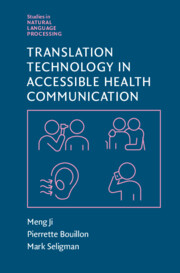Series Editor:
Chu-Ren Huang, The Hong Kong Polytechnic University
Associate Editor:
Qi Su, Peking University, School of Foreign Languages
Editorial Board Members:
Alessandro Lenci, University of Pisa
Lori Levin, Carnegie Mellon University
Yuji Matsumoto, Nara Institute of Technology
Nianwen Xue, Brandeis University
Volumes in the SNLP series provide comprehensive surveys of current research topics and applications in the field of natural language processing (NLP) that shed light on language technology, language cognition, language and society, and linguistics. The increased availability of language corpora and digital media, as well as advances in computer technology and data sciences, has led to important new findings in the field. Widespread applications include voice-activated interfaces, translation, search engine optimization, and affective computing. NLP also has applications in areas such as knowledge engineering, language learning, digital humanities, corpus linguistics, and textual analysis. These volumes will be of interest to researchers and graduate students working in NLP and other fields related to the processing of language and knowledge.



